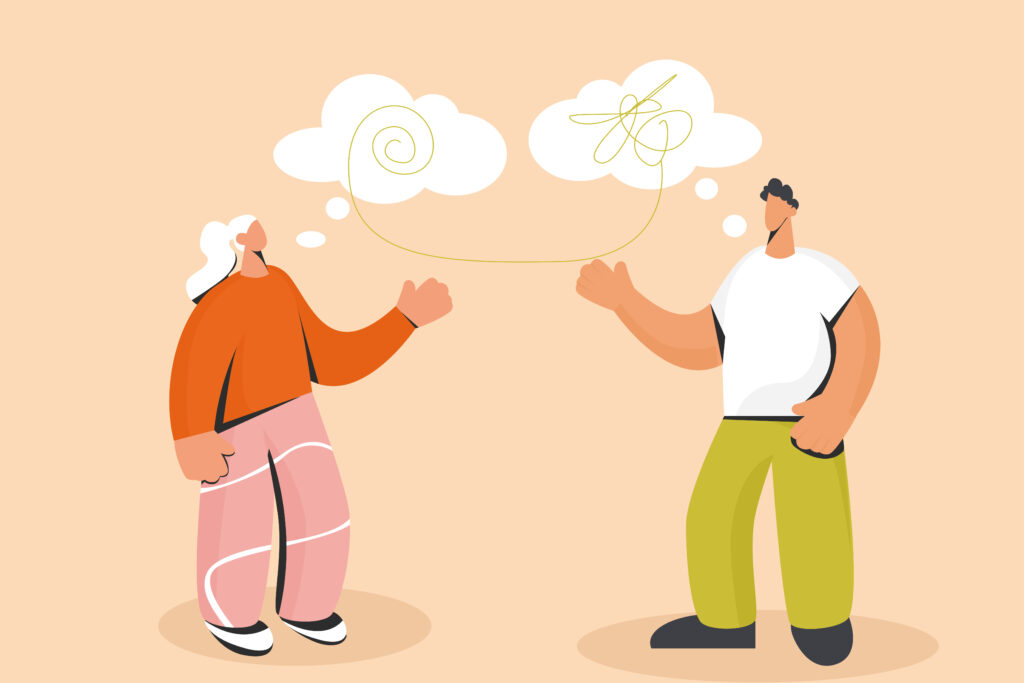Last updated on December 20th, 2024 at 01:55 pm
Age gap relationships, which are defined as romantic partnerships where the partners have a significant age difference, can present a unique set of challenges and rewards. While societal stigma, communication issues, generational differences, and challenges with family and friends can create obstacles, age gap relationships can also provide fresh perspectives, increased empathy, and stronger bonds. In this article, we will explore both the challenges and rewards of age gap relationships and offer strategies for navigating difficulties while celebrating the positive aspects of these types of relationships.
Challenges in Age Gap Relationships

One of the main challenges in age gap relationships is societal stigma. Many people harbor misconceptions and negative perceptions of relationships with a significant age difference. This can result in adverse reactions and comments from others, which can affect the couple’s self-esteem and self-worth. Furthermore, the partners may feel pressured to keep the relationship a secret or to justify their choice to be together.
Another challenge in age gap relationships is communication and generational differences. Partners may possess varying communication styles, life experiences, and perspectives, which can lead to misunderstandings and conflict. Furthermore, age gap couples may hold different expectations for the relationship and may not align on important issues such as children and retirement.
Issues with family and friends can pose a significant challenge for age gap couples. Family members and friends may disapprove of the relationship or struggle to accept the age difference. This can create tension and estrangement, which can be difficult for the couple. Furthermore, blending families and social circles can be challenging, as the partners may have different friends and lack a shared social network.
Financial and legal challenges can also pose difficulties for age gap couples. One partner may be more financially stable than the other, leading to tension and resentment. Furthermore, retirement and end-of-life planning can become complicated, as the partners may have differing timelines and goals.
Benefits of Age Gap Relationships
Despite the challenges, age gap relationships can provide several rewards. One of the most significant benefits is the exposure to diverse perspectives and lifestyles. Partners in age gap relationships can learn from and teach each other, fostering both personal and professional growth.
Another benefit of age gap relationships is enhanced empathy and understanding. Partners may be more accepting of each other’s differences and may possess a deeper understanding of one another. This can foster stronger emotional connections and a greater appreciation of the relationship.
Time spent together can also serve as a valuable reward in age gap relationships. Instead of concentrating on time apart, partners can prioritize quality moments together. This approach can foster a more balanced, slower-paced life. Furthermore, age gap couples may possess a deeper understanding of each other and a greater appreciation for the time they share, which can enhance the relationship and make it more meaningful.
Coping Strategies for Navigating the Challenges
When navigating the challenges of an age gap relationship, it is crucial to have coping strategies in place. Establishing a support system can be extremely beneficial. Partners can seek support from friends, family, or professional counselors, and may also consider joining age gap relationship support groups. Additionally, it is helpful to connect with individuals who have faced similar challenges.
Another important strategy is to concentrate on what unites the partners rather than what divides them. Identifying shared interests, values, and goals can help strengthen the relationship. Furthermore, it is essential to avoid making assumptions about one another and to communicate openly and honestly.
Celebrating the Rewards

Another advantage of age gap relationships is the maturity and life experience that accompany age. Older partners often possess greater experience in relationships and may be better equipped to manage conflicts and challenges. They may also enjoy greater financial stability, which can help alleviate stress and uncertainty. Furthermore, older partners tend to have a clearer sense of self, making them more secure in their identity and less likely to compromise themselves for the sake of the relationship.
Additionally, age gap relationships can foster a greater sense of trust, intimacy, and respect. Partners in these relationships may have fewer superficial concerns and more serious intentions. They may be more inclined to communicate openly and honestly and to place a higher value on shared goals and values.
Age gap relationships can offer a sense of security and companionship in later life, especially when one partner has already retired or is approaching retirement. With partners at different life stages and diverse experiences, they may appreciate the relationship and each other’s presence more, finding contentment in one another’s company.
Conclusion
Age gap relationships can present a unique set of challenges, but they can also offer numerous rewards. Societal stigma, communication barriers, generational differences, and issues with family and friends can create obstacles. However, fresh perspectives, increased empathy, and stronger relationship bonds can also emerge. It is essential to maintain open communication, mutual understanding, and a willingness to compromise to make an age gap relationship successful. Additionally, having coping strategies in place and finding ways to celebrate the rewards can help navigate the difficulties and strengthen the bond between partners. With the right approach, age gap relationships can be fulfilling and meaningful for both individuals.


